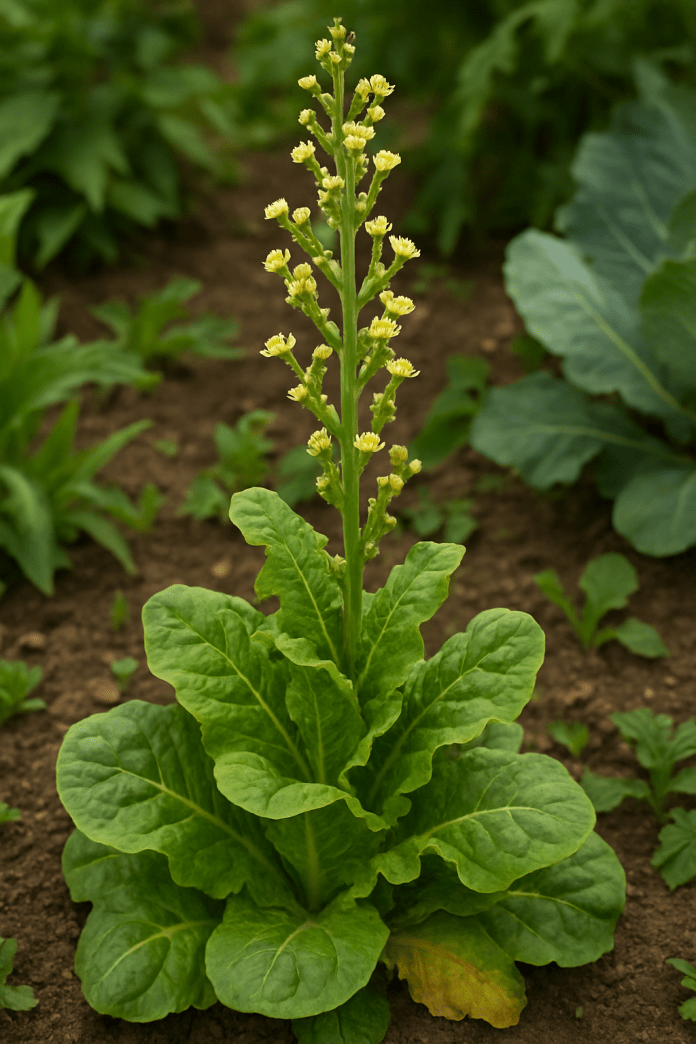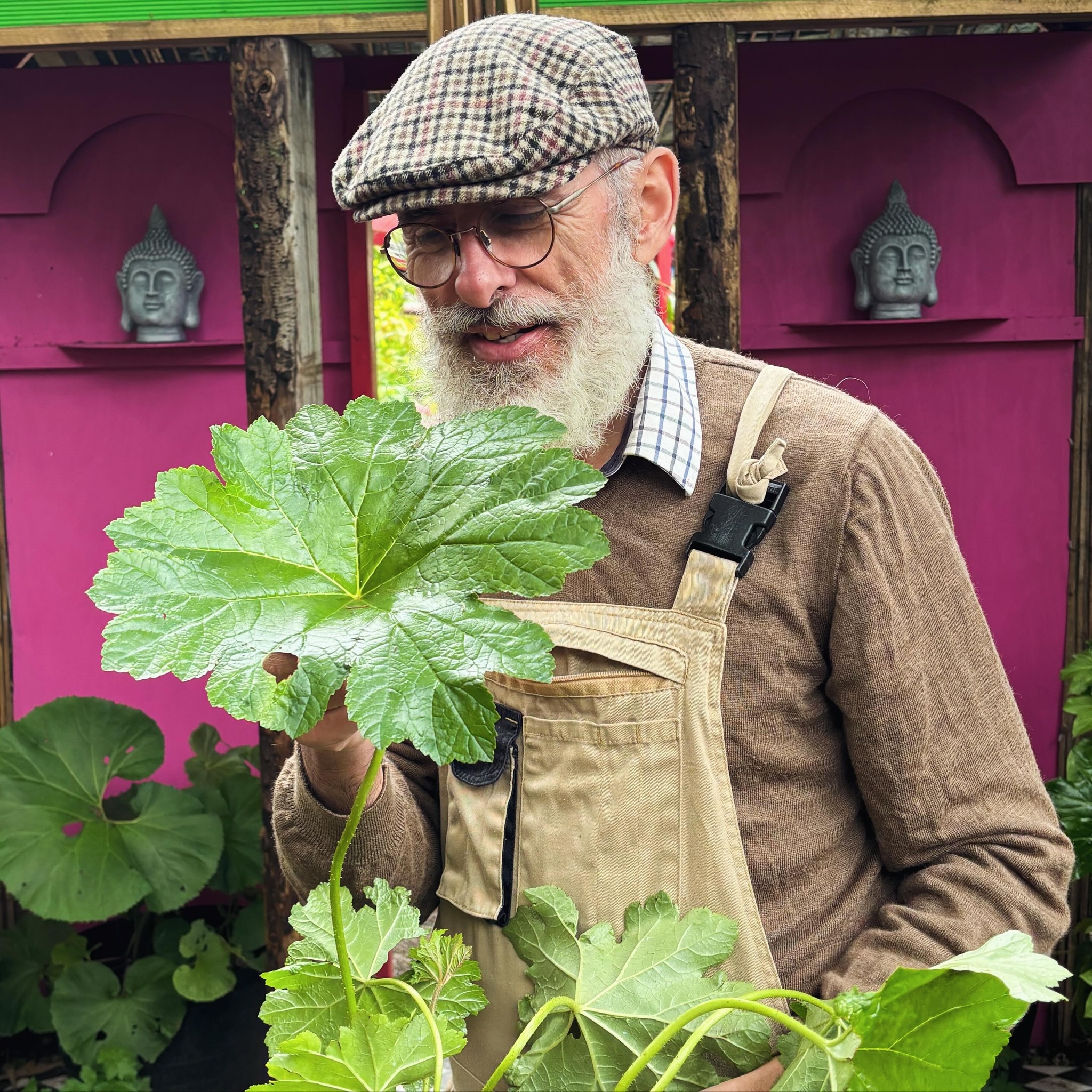Bolting
Category: Plant Physiology / Growth Disorders
Definition:
Bolting is the premature production of a flowering stem in plants before the crop has been harvested, typically triggered by environmental stress. It is especially common in leafy vegetables such as lettuce (Lactuca sativa), spinach (Spinacia oleracea), beetroot (Beta vulgaris), and members of the Brassicaceae family like cabbage, pak choi, and radish.
Symptoms:
- Rapid vertical growth with the development of an elongated flowering stem.
- Formation of flower buds followed by seed production.
- A decline in leaf quality: leaves often become smaller, tougher, bitter, or unpalatable.
- The plant may shift energy from leaf or root development to reproductive structures.
Causes:
Bolting is a response to physiological stress and is influenced by a combination of internal and external factors:
- Photoperiod Sensitivity:
- Many biennial or cool-season crops are sensitive to day length and bolt when days become longer.
- Temperature Fluctuations:
- Exposure to cold temperatures followed by warm weather can mimic the passage of a winter season, triggering flowering in biennials.
- Conversely, excessive heat can also induce bolting in heat-sensitive species.
- Genetic Predisposition:
- Some cultivars are more bolt-resistant than others due to differences in vernalisation requirements or flowering gene expression.
- Stress Factors:
- Water stress, nutrient deficiency, root disturbance, or overcrowding can all hasten the bolting process.
Plants Commonly Affected:
- Lettuce
- Spinach
- Rocket (arugula)
- Beetroot
- Pak choi and other Asian greens
- Onions and leeks
- Coriander (cilantro)
- Carrots and parsley (especially in their second year)
Prevention and Management:
- Sow at the Right Time:
- Choose appropriate planting windows to avoid periods of stress or unsuitable day lengths.
- Use Bolt-Resistant Varieties:
- Select cultivars bred to delay flowering under typical stress conditions.
- Maintain Steady Growing Conditions:
- Keep soil moisture consistent, avoid over-fertilising, and thin plants as needed to reduce competition.
- Shade and Cooling:
- Use shade cloths or interplanting techniques in hot climates to moderate temperature extremes.
- Harvest Promptly:
- For crops grown for leaves, regular harvesting may delay bolting and extend the productive period.
Impact on Crop Value:
Bolting significantly reduces the culinary and market quality of many vegetables, particularly those grown for tender leaves or roots. Once a plant begins to bolt, reversal is not possible, and it is usually best to remove and replace the crop.
Note:
Bolting is a natural part of a plant’s life cycle, but in the context of food production, it is generally undesirable and considered a form of crop failure.




